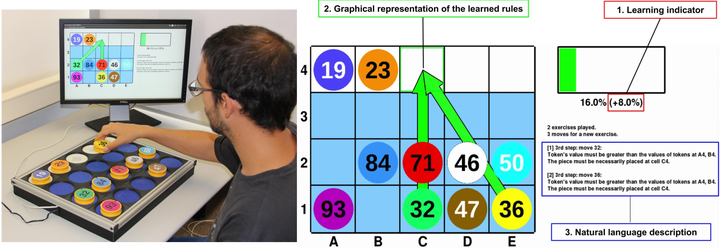
Abstract
In this paper, we present a learning approach to facilitate the teaching of new board exercises to assistive robotic systems. We formulate the problem as the learning of action models using Boolean predicates, disjunctive preconditions, and existential quantifiers from demonstrations of successful exercise executions. To be able to cope with exercises whose rules depend on a set of features that are initialized at the beginning of each play-out, we introduce the concept of dynamic context. Furthermore, we show how the learnt knowledge can be represented intuitively in a graphical interface that helps the caregiver understand what the system has learnt. As validation, we conducted a user study in which we evaluated whether and to which extent different types of feedback can affect the subjects’ performance while teaching three types of exercises: (1) sorting numbers; (2) arranging letters; and (3) reproducing shapes sequences in reversed order. The results suggest that textual and graphical feedback are beneficial.